Who doesn’t love illustrations? That’s a rhetorical question. I doubt that anybody would take offense to illustrations being interspersed amongst the text of a story.
The Guardian treats its readers to a taste of a new series of recently illustrated children’s classics.
Walkers have put together some of the world’s greatest children’s literature with the best contemporary illustrators to create a beautiful and accessible collection of classics for a new generation. Here we gather together images from the first five titles in the Walker Illustrated Classics series.
Even if you’ve read these classics, the illustrations may entice you to have another look. For me, the fresh visual interpretation is even more enticing considering how well worn these stories are. I’m curious as to how an illustator can create a new perspective when so many have done the same and so successfully. And of course, who can resist discovering the work of ‘the best contemporary illustrators’? The Guardian gives us a taste of the first 5 titles in the series accompanied by the illustrators’ reflections – a sure hook to wanting to see the rest.
Paul Howard illustrated Classic poetry and reveals his initial apprehension:
The idea of illustrating classic poetry terrified me at first – I can’t remember jokes let alone poems from my school days and consequently think of myself as a ‘poetus ignoramus’. To my great surprise this worked in my favour and I found myself embarking on a fantastic voyage of discovery.
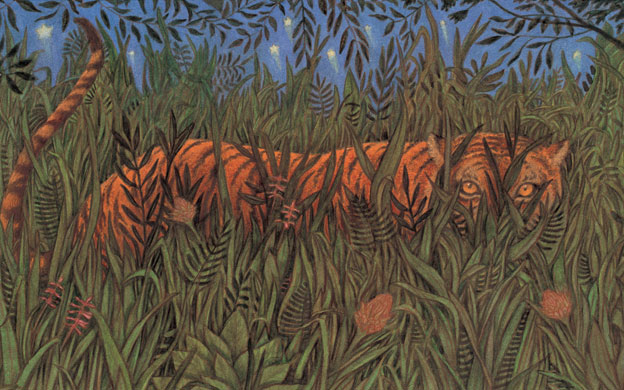
Howard’s personal challenge to tackle poetry could be an inspiration for the current reading generation for whom poetry has become largely engimatic.
When I was battling to understand some of the poems, Michael Rosen would read them to me aloud. Listening to him was like clearing a misty window and letting the sun pour in.
Helen Oxenbury’s unmistakable style brings a contemporary realism to Alice in Wonderland.
I admire Tenniel’s original illustrations enormously, but I find his typically Victorian style rather stiff …
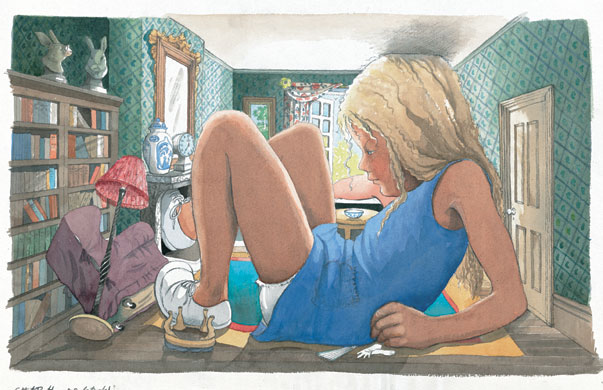
Inga Moore’s reflection provides a fascinating honesty:
The Secret Garden is one of the greatest books for children of all time and it took me a long while to pluck up the courage to illustrate it. What made me think I could do it justice? I knew a merely decorative approach wouldn’t do for a work with such depth of meaning so I decided to bring out as much of its meaning as I could in my pictures, carefully placing them next to the words they illustrated in the hope that the two together would make a more vivid whole …
I love the atmosphere of this picture, and the attention to detail (notice the tiny red bird high in the tree).
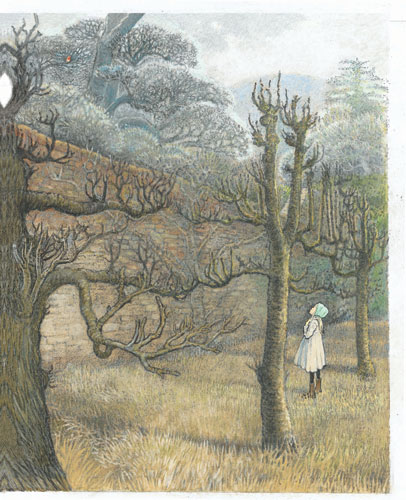
Nicola Bayley combines contemporary realism with the exotic in her interpretation of Rudyard Kipling’s Jungle book.
For me, illustrating a classic is treading a fine line between authenticity and beauty.
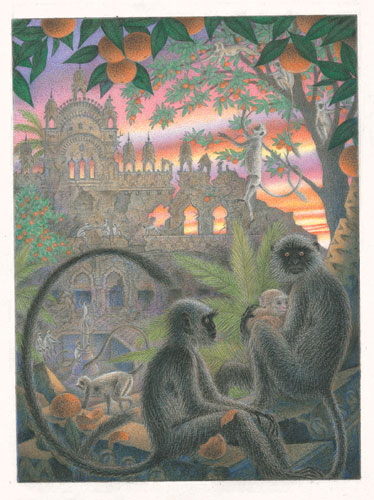
Chris Riddell brings his own style to the classic Don Quixote:
Very early on I decided not to be daunted by the size of the book and to approach light-heartedly, in an attempt to reflect the satire and humour in the work. Don Quixote is a great big book that satires great big books, an epic romance that pokes fun at epic romances. I looked at the paintings of Velázquez, and used costumes and settings from his great Royal portraits to give the illustrations a 17th-century feel, but I also wanted a fantasy feel to the illustrations, so the giants and monsters came out of my imagination …
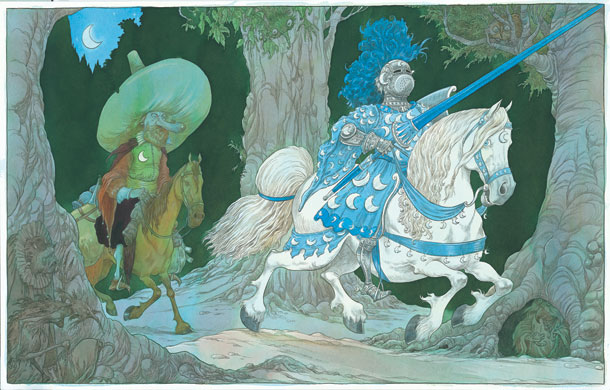
In light of Anne Fine’s recent outspokenness about the grimness of contemporary Young Adult fiction, Walker’s collection of contemporary illustators’ re-envisioning of well loved classics, may be just what we need. As much as I love the honesty and power of modern fiction for young people, I don’t mind revisiting my old fantasy haunts, entering the rich, illustrated world which has always been such a tantalising, albeit temporary, escape from the everyday. If, as children, we fed our imagination and creativity with favourite illustations of fantastic tales, why shouldn’t we revisit now and then to take nourishment?


